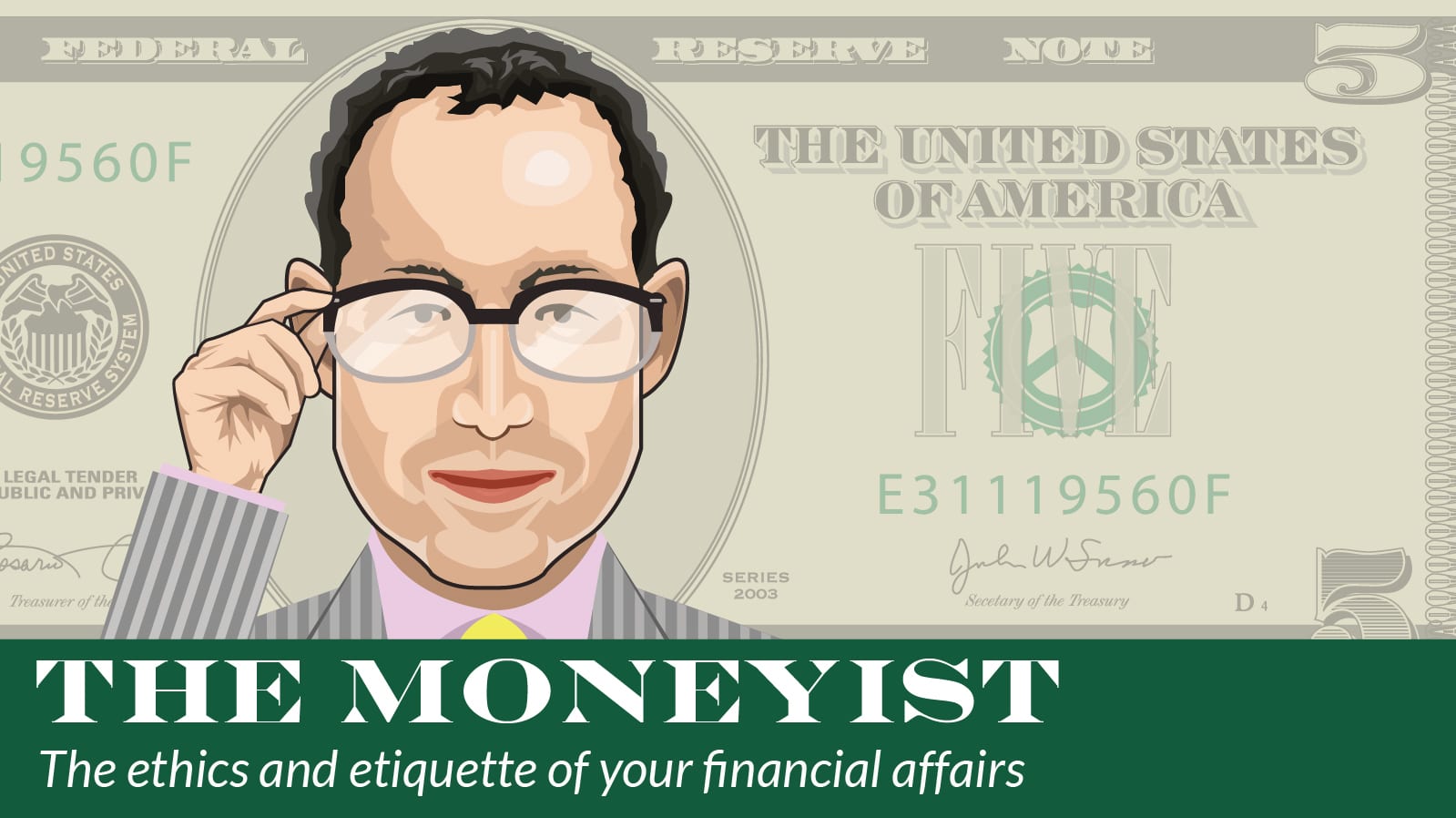Trading accounts
Platforms
News
We provide the latest news
from the world of economics and finance
We provide the latest news from the world of economics and finance

My husband and I have $45,000 in debt on credit cards with 0% interest rates that will start charging interest in July. We bought a house for $1.3 million that is now worth $1.5 million. We live in a very strong housing market in Los Angeles so we’re not worried about it losing value.
I racked up the $45,000 in credit-card debt doing home repairs and had expected to get money to pay for them from a family member who was holding on to some of our cash, but unfortunately our relative lost our money, which is why we’re in this situation.
Would it make sense to take out a home-equity loan to pay down the debt? We’re also considering a bank loan. What would be some pros and cons?
Homeowners With Credit-Card Debt
Related: ‘Punishing myself would not help’: My credit card was stolen — the theft revealed lots of nasty surprises about my finances

My first “answer” relates to a question you didn’t ask.
Why was a family member holding your cash? Was it for safekeeping? Or did you loan them money with the expectation that they would repay you? You have clearly made many good financial decisions to allow you to buy a home in Los Angeles for $1.3 million. No doubt you will have learned from this credit-card home-repair family-member snafu.
You put this debt on a 0% credit card. They are enticing if you have debts on other cards with prohibitive interest rates, but may also encourage you to spend. Either way, when July comes around, you will be paying an APR of around 20.7% if you don’t take action now. (The average personal-loan interest rate currently hovers at 12.7%.)
Another silver lining: Although you spent money that you did not technically have, at least you made home repairs, which should contribute to the value of your home. You also bought in a strong property market and — barring any sudden downturn in U.S. house prices — you put money in what should be a good long-term investment.
There’s an outside chance that you could deduct the “loan” as a bad debt: You must show that you intended to make a loan and not a gift, the Internal Revenue Service says. “If you lend money to a relative or friend with the understanding the relative or friend may not repay it, you must consider it as a gift and not as a loan, and you may not deduct it as a bad debt.”
If you are locked into an attractive mortgage rate from, say, 2021, don’t touch it. Your ability to take out a home-equity line of credit will depend on your mortgage balance, your interest rate and your loan-to-value ratio, says Paul Karger, co-founder and managing director at wealth-advisory firm TwinFocus. Importantly, a HELOC will not affect your existing mortgage rate.
“If you bought your home more than two years ago, one would guess that your mortgage interest rate is relatively reasonable vis-à-vis the current rates,” he says. “Refinancing your mortgage to take out equity may not be a wise decision from a purely financial perspective, given the alternative of keeping your credit-card debt outstanding, albeit with a higher rate.”
Currently, HELOCs are pricing in the 8% to 10% range, Karger says. “Typically, HELOCs are less expensive than personal, unsecured loans since they are backed with equity collateral in your home. Assuming the interest rate on your credit cards jump to a rate higher than the HELOC, borrowing via a HELOC makes prudent financial sense, all else being equal.”
The cons are more of a worst-case scenario. “If you were unable to pay off the HELOC, in theory, the bank could foreclose on your property, depending on the terms of your HELOC and whether you would have any applicable homestead protections, etc.,” Karger adds. “It all comes down to your confidence and discipline in your ability to eventually pay back the loan.
In addition to your HELOC (if you qualify for one) having a lower interest rate than your credit-card debt, if you can prove these funds were spent on home improvement in the last 90 days, you may also qualify for mortgage-interest deductions on a HELOC, says Jeff Taylor, founder and managing director of Digital Risk, which provides mortgage and financial services.
And, now, a sharp dose of reality: In order to qualify for a new loan, the loan balances of your existing mortgage ($1.3 million) and a HELOC or line of credit typically can’t exceed 90% of your home’s value ($1.5 million), Taylor says. That means you might qualify for a loan of up to $50,000, he adds. Prepare for your bank to go over your financial and employment details in forensic detail. But you have two months to decide.
It’s smart to ask for help now before that 0% rate expires.
The Moneyist regrets he cannot reply to questions individually.
Previous columns by Quentin Fottrell:
‘We were all set to enjoy our retirement’: My son invested in startups and we bailed him out with $100,000. What now?
‘I’d rather wear a potato sack’: I’m a bridesmaid at three weddings. The brides chose ugly dresses — and I’m obliged to pay. Should I say no?
‘He’s quit talking to me’: My father, 83, suffers from hoarding disorder and dementia. How can I help him and protect his estate?
Check out the Moneyist private Facebook group, where members help answer life’s thorniest money issues. Post your questions, or weigh in on the latest Moneyist columns.
By emailing your questions to the Moneyist or posting your dilemmas on the Moneyist Facebook group, you agree to have them published anonymously on MarketWatch.
By submitting your story to Dow Jones & Co., the publisher of MarketWatch, you understand and agree that we may use your story, or versions of it, in all media and platforms, including via third parties.